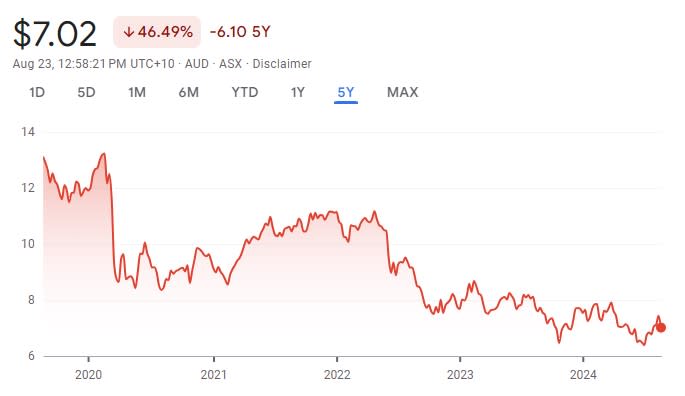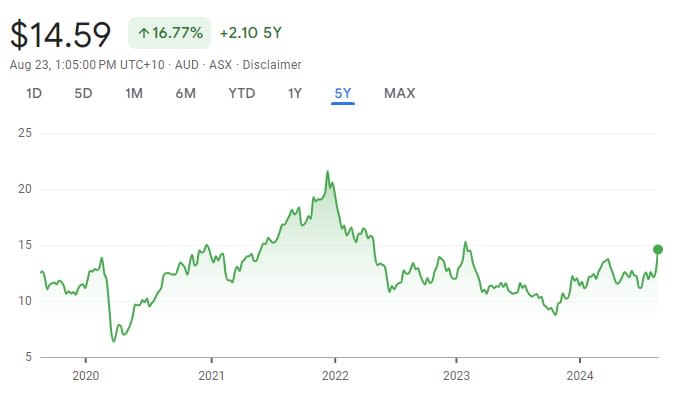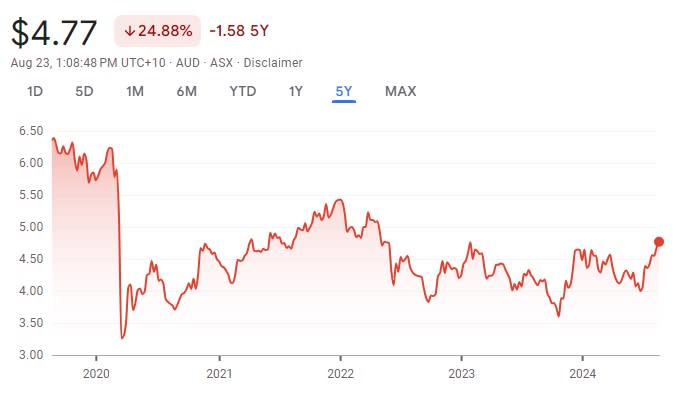Tough Times Savage Listed Office Giants’ Portfolios

A combination of elevated interest rates, higher financing costs, and lifestyle changes led key ASX-listed property investors with exposure to the office sector to widen their losses during the reporting season.
Australia’s biggest office landlord Dexus has reported a $1.58 billion net loss for 12 months to June 2024, driven primarily by “greater unrealised fair valuation losses on investment property in FY24 compared to FY23”.
The value of Dexus’s office portfolio in June sank about 11.3 per cent due to higher capitalisation rates and discount rates, partially offset by market rental growth. At the same time, the value of its industrial portfolio dropped around 1.2 per cent.
Dexus chief executive and managing director Ross Du Vernet said the occupancy remained high across office and industrial portfolios despite “a challenging environment”.
The office portfolio occupancy “reduced only marginally” during the year to 94.8 per cent, while incentives remained lower than in FY23, which had been impacted by large renewal deals.
“In office, location remains a key differentiator for asset performance, with the Sydney core and Melbourne eastern core again reporting materially lower vacancy compared with their respective CBD averages,” the company said in the ASX announcement.
“The Brisbane market continues to improve, benefiting from strong demand and limited medium-term supply.”
Dexus (DXS)

Charter Hall was another property developer and funds manager that swung to a statutory loss, $222.1 million after tax compared to a $196.1 million profit the year before, after the group’s funds under management contracted by $6.5 billion to $80.9 billion, along with further devaluations.
Property funds under management ($65.5 billion) dropped by $6.3 billion, driven by devaluations of $6.1 billion and divestments of $2.4 billion, offset by acquisitions and capex and development spend.
Office and industrial/logistics remain the two largest segments, each accounting for 31 per cent of Charter Hall’s $80.9 billion portfolio.
Charter Hall managing director and group chief executive David Harrison said that with signs of slowing economy and inflation trends moderating, the group was “well positioned to take advantage of a lower interest rate environment as it emerges”.
Charter Hall Group (CHC)

ASX-listed property investor GPT Group was also hit by the devaluation of its office portfolio and widened its half-year loss after tax to $249.4 million versus a $1.1 million loss in the same period last year.
GPT, which has only one office development project under way in its Wholesale Office Fund at 51 Flinders Lane in Melbourne, reported investment property valuation declines of $566.8 million, while its office funds management income dropped by $1.1 million to $19.1 million.
Chief executive Russell Proutt said the first-half performance reflected the strength of the group’s diversified portfolio and its disciplined approach to capital management. He said that the ambition was to become “Australia’s leading diversified real estate investment manager”.
“This is an evolution of our strategy, with an acceleration and emphasis on our investment management segment,” he said.
GPT Group (GPT)















